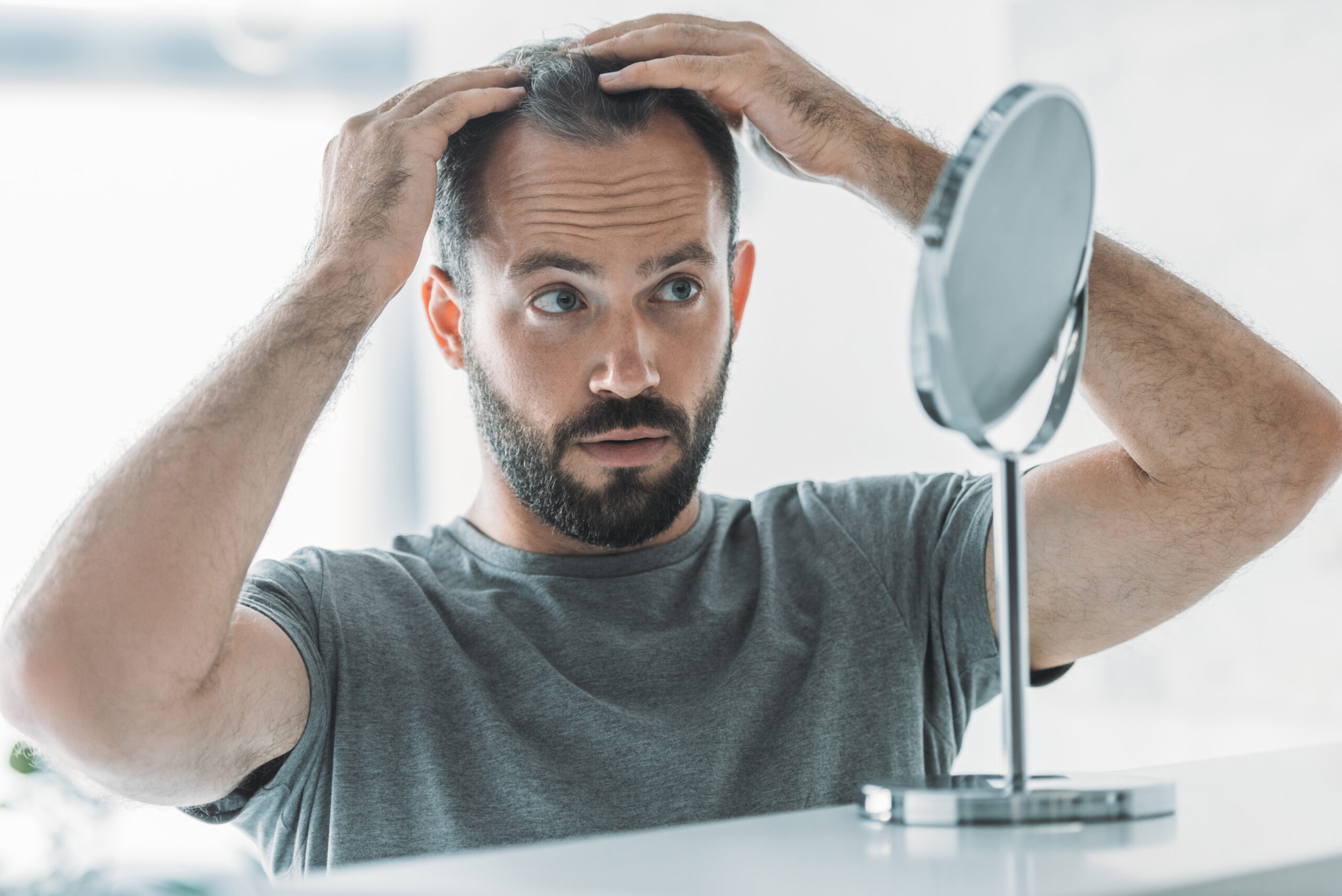Researchers successfully used AI to fight hair loss in mice. Could humans be next?
This sounds like science fiction, but it’s real. Researchers in China are using AI to fight hair loss by letting it identify nanoparticles that could regrow hair in mice, according to the American Chemical Society.
Before they got started in earnest, however, the researchers took a different approach to the root causes of hair loss than normal. The male hormone DHT has long been thought to be responsible for male pattern balding. But not here. This new technology addresses the oxidative stress that damages follicles.
How artificial intelligence reversed hair loss in mice
With a physical target in mind, researchers used machine learning to choose an enzyme from a list of 91 candidates that naturally combat oxidative stress. These junk particles build up in the skin and damage fragile hair ollicles. Over time this causes permanent hair loss.
Finally, the scientists applied a microneedle patch to deliver the treatment.
Microneedling alone is a popular treatment for hair loss. It works by stimulating blood flow and collagen production in the scalp.
This particular microneedle patch is just what it sounds like. It’s an array of small needles that deliver what the researchers call “nanoenzymes.” The enzymes are like ones made in the body. They break down harmful particles, recreating a healthier environment that allows normal hair growth.
After just 13 days the mice had thicker and denser hair compared with a control group that was receiving either topical minoxidil or testosterone, according to the researchers

Animal studies must be taken with a grain of salt and may not apply to humans. However, two things are notable about this study.
First, the researchers embraced a philosophically anti-aging premise that pins hair loss on the broader cellular chaos caused by the sands of time. Clean up the mess caused by stress in the body, the theory goes, and you wind back the clock.
Second, by using AI to fight hair loss, these researchers are accelerating innovation in an area that has languished for decades without a fundamental breakthrough.
Certainly, for anyone dealing with the stress of hair loss, this novel approach is welcome.
Check out our hair loss blog for the latest news on research, treatments, and products that can help you treat hair loss.




